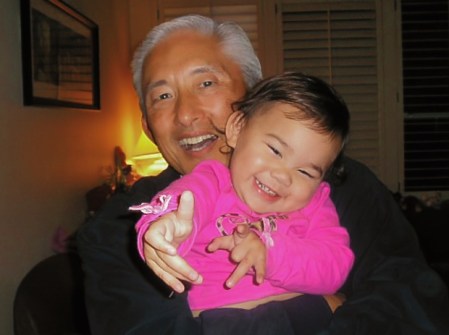
The Day Dad Needed A Pacemaker
A few years ago my dad and I were standing outside a restaurant waiting to be seated and in the course of conversation I made a random comment about a baseball player named Willie Keeler.
“Wee” Willie Keeler dad corrected me enthusiastically. That set off a ten minute riff about Keeler, who played from 1892 to 1910. Dad cited his career statistics, physical stature (Keller stood a mere 5’4” feet tall), and the teams he played for.
Why he knew the details of Keeler’s career is beyond me. Most astonishing was how the information was delivered – with vigor and gusto.
The racing heart
Fast forward to one morning in October 2024. The vigorous guy, woke up with a rapid heart beat, better known as arterial flutter. He ran marathons until his early 50’s so an elevated heart rate was not new to him. This time was different so my mom rushed him to the ER.
For fourteen hours the doctors worked to stabilize his heart and diagnose the problem. The ER docs were unable to identify the cause and referred him to a specialist.
I’ve only known my dad as a jogger, the guy who insisted on playing shortstop at the company picnic, as my basketball coach who ran laps with the players and who followed an incredibly healthy diet. Laying on a gurney with needles and tubes inserted in him was unsettling, he said.

Dad with his oldest granddaughter
A few weeks after the hospital visit he saw a cardiologist who had him to wear a heart monitor for a week. Over the next seven days my dad had 5,000 episodes of irregular heart rhythm. The solution was to install a pacemaker.
Calling Dr. Freud
Sigmund Freud, the famous psychologist once wrote, “No one could be a man unless his father had died.” Anyway you parse that statement, it’s harsh. If becoming a man means losing my dad I’m not sure I want the promotion.
It took two months between the ER visit and the installation of the pacemaker. During the lull I read everything I could about pacemakers: how they work, do they work, the risks involved and the survival rate for people with pacemakers.

With another granddaughter (sorry, I can’t tell which kid this is)
Approximately 200,000 pacemakers are implanted each year in the US, the vast majority without any complications and patients only have a minor disturbance to everyday activities during the recovery process. Worldwide, about three million people live with pacemakers.
Once I was convinced that pacemakers are routine I focused my thoughts on playing catch with dad in the backyard, attending Dodgers games, Saturday afternoons spent at the Los Angeles Coliseum watching USC football games, and many nights at the Great Western Forum watching the Los Angeles Lakers.
As I replayed all the things we did together I thought, “He can’t die. I’m not ready to be a man.”
The checkup
Today he went for his two-week post surgery check up. He texted a note to assure me that all is going well. He can resume driving and in March he can start playing golf again. He added that he can now take a shower.
It would have been too easy to offer congratulations on the check up. Instead I said, “Glad you can shower. After two weeks, you must stink.”
Out of the mouths of babes.

Leave a Reply